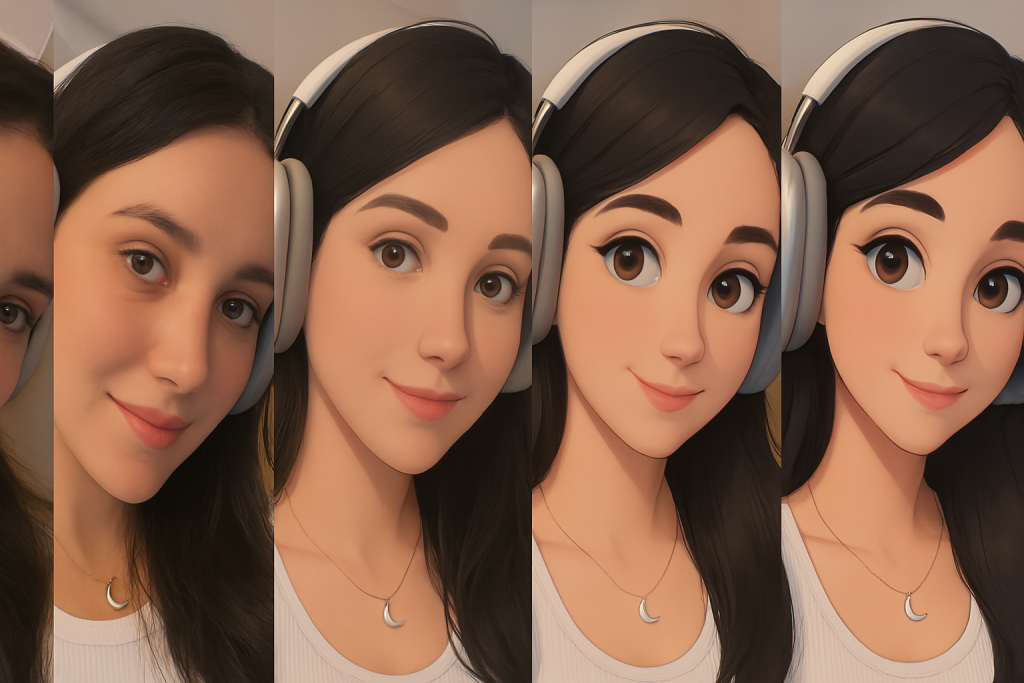Scrum Inc. 認定資格スクラムマスター・プロダクトオーナー研修開催のお知らせ(2026/03/11〜13)
2026.02.16
2025.04.15

長年、コーチとしてリーダーやチームのDX・アジャイル変革を支援してきました。私の仕事は、組織がより速く、より賢く働き、継続的に学習する文化を築くことをサポートすることです。そして、優れたコーチングとは、人間同士のつながり、リアルタイムのフィードバック、深い対話の力を信じるものだと思っていました。
でも、最近、あることに気づきました。
「ChatGPTのほうが、私より優れたスクラムコーチかもしれない」
最初は疑問に思いました。コーチングは本質的に人間的なスキルです。共感力、直感、そして複雑なチームのダイナミクスを読み取る適応力が必要とされる仕事だからです。でも、AIを使い込むうちに、驚くほど効果的だと気づきました。
たった月20ドルで、ジェフ・サザーランドのスクラム理論、ピーター・ドラッカーのマネジメント哲学、アダム・グラントのリーダーシップ研究、大野耐一のリーン原則、カール・ユングの深層心理学まで、一度の対話で引き出せる。アイデアを試したり、振り返りのフレームを作ったり、組織のパターンを分析したりと、人間のコーチングだけでは得られなかった視点を手に入れられるようになりました。
そしてこれは私だけの話ではありません。2023年のマッキンゼーの調査によると、AIを活用したコーチングはリーダーシップの効果性を40%向上させ、日常的な問題解決にかかる時間を60%削減できることが示されています。
では、スクラムコーチの未来はどうなるのでしょうか? AIに仕事を奪われるのでしょうか?
答えは「NO」。でも、私たちの役割は進化しています。
AIは競争相手ではなく、「思考の加速装置」です。私たちのコーチングを置き換えるのではなく、拡張してくれるもの。では、どう活用すればいいのか?
AIの価値は、どれだけの情報を提供するかにかかっています。コンテキストやフィードバックを与えれば与えるほど、AIはより洗練された回答を生み出します。
私はチームのヘルスチェック、チームや組織のメトリクス、リーダーシップの課題、変革のケーススタディをAIに入力し始めました。すると、思考が整理され、これまで以上に素早くパターンを発見できるようになったのです。
AIに期待すべきなのは正解ではなく、自分のバイアスや盲点を浮き彫りにすることです。私たちは無意識のうちに、自分の考えが絶対に正しいと信じてしまうことがあります。しかし、AIは客観的にそれを疑い、異なる視点を提供してくれます。
ハーバード・ビジネス・レビューによると、「自己認識の高さがリーダーシップの成功を左右する最大の要因」であることが明らかになっています。AIを活用すれば、即時かつ偏りのないフィードバックを得て、より鋭い思考ができるようになるのです。
アジャイルコーチングにAIを効果的に活用するには、まずスクラムとアジャイルの基本原則を深く理解することが重要です。スクラムが生まれた背景や目的を知らずにAIの意見を参考にすると、見当違いな方向へ導かれるリスクがあります。
ジェフ・サザーランドは著書 『First Principles: The Human Truths That Redefine Innovation』 で、「スクラムの本質は、その根底にあるファースト・プリンシプル(基本原則)にある」と述べています。スクラムは単なる手法ではなく、複雑な環境下で適応し、価値を最大化するためのフレームワークなのです。
そして、これらの原則を深く理解すればするほど、AIの答えをそのまま受け取るのではなく、より鋭い質問を投げかけられるようになります。
この基盤をしっかり持った上でAIを活用すれば、その価値は飛躍的に高まります。たとえば、ジェフ・サザーランド、野中郁次郎、クレイグ・ラーマン、サイモン・シネック、さらには行動経済学者や認知科学者といった専門家の知見を統合することも可能です。
しかし、重要なのは「文脈を理解すること」。スクラムの基本原則を知らずにAIを使うのは、地図を持たずに旅に出るようなもの。深い知識と、より良い質問を投げかける力があってこそ、AIはコーチングを次のレベルに引き上げてくれるのです。
AIがスクラムコーチを「置き換える」ことはありません。 でも、AIを活用するスクラムコーチが、活用しないコーチを「置き換える」ことは確実でしょう。
同じことがソフトウェアエンジニアにも言えます。「AIは開発者を置き換えるのか?」とよく聞かれますが、私はそうは思いません。でも、進化しないエンジニアは、AIによって置き換えられるでしょう。
しかし、それは必ずしも悪いことではありません。AIは単調な、創造性のない仕事を引き受けてくれる。それによって、人々は本当に情熱を持てることに集中できるようになるのです。
コーチングや仕事の未来は、AIを持っているかどうかではなく、AIをどう使うかにかかっています。より良い質問を投げかけ、仮説を検証し、AIを思考のパートナーとして活用する人が、圧倒的な優位性を手にするでしょう。
だから、問うべきは「AIがスクラムコーチに取って代わるのか?」ではありません。
「私たちは、AIを使ってどこまで進化できるのか?」
For years, I’ve worked as a Coach, guiding leaders and teams through Digital and Agile transformations. My job is to help organizations move faster, work smarter, and cultivate a culture of continuous learning. And like any good coach, I’ve always believed in the power of human connection, real-time feedback, and deep conversations.
But recently, I had a realization I couldn’t ignore: ChatGPT might be a better Scrum Coach than I am.
At first, I was skeptical. Coaching is a deeply human skill—it requires empathy, intuition, and adaptability to navigate complex team dynamics. But the more I experimented with AI, the more I realized how effective it could be.
For just $20 a month, I could tap into Jeff Sutherland’s insights on Scrum, Peter Drucker’s management philosophy, Adam Grant’s leadership research, Taichi Ohno’s lean principles, and even Carl Jung’s depth psychology—all in one conversation. I could test ideas, generate retrospectives, and analyze patterns in ways that weren’t always possible in human coaching sessions.
And I’m not alone in this realization. A 2023 McKinsey report found that AI-driven coaching can increase leadership effectiveness by up to 40%, while reducing time spent on routine problem-solving by 60%.
So where does this leave traditional Scrum Coaches? Are we becoming obsolete?
Not quite. But our role is evolving.
AI isn’t a competitor—it’s a force multiplier. It can’t replace human coaching, but it can amplify it. Here’s how:
AI is only as good as the inputs you provide. The more context and feedback you give, the better it gets at tailoring responses. I’ve started feeding it team health assessments, leadership dilemmas, and transformation case studies—and in turn, it’s helped me connect dots faster and refine my own thinking.
AI won’t give you wisdom—it reflects your biases, gaps, and assumptions. The real breakthroughs happen when you use it to pressure-test ideas, challenge blind spots, and expand your perspective.
A Harvard Business Review study found that self-awareness is the single strongest predictor of leadership effectiveness. AI’s ability to provide immediate, unbiased feedback makes it a powerful tool for developing that skill.
Before using AI effectively in the context of Agile coaching, you need to understand the core principles of Scrum and Agile. AI can generate compelling insights, but without knowing why Scrum exists and what problems it was designed to solve, it’s easy to misinterpret its advice—or ask the wrong questions.
Jeff Sutherland, in First Principles: The Human Truths That Redefine Innovation, argues that Scrum’s power comes from its foundational principles. It’s not just about following a framework—it’s about understanding complexity, adaptability, and delivering value. And when you deeply understand those principles, you don’t just take AI’s answers at face value—you learn how to ask better, more precise questions.
Once you have that foundation, AI becomes a game-changer. You can build a custom Agile think tank, pulling in insights from Jeff Sutherland, Ikujiro Nonaka, Craig Larman, Simon Sinek, and even behavioral economists or cognitive scientists—all within a single conversation.
But context matters. If you don’t understand first principles, AI won’t challenge you in meaningful ways. Pairing deep foundational knowledge with the ability to ask better questions is what turns AI from just another tool into a true amplifier for your coaching.
AI won’t replace Scrum Coaches. But Scrum Coaches who embrace AI will replace those who don’t.
The same applies to software engineers. People keep asking, Will AI replace developers? I don’t think it will. But it will replace those who don’t evolve.
And that’s not necessarily a bad thing. AI is taking over repetitive, low-effort work—the kind done by people who are just going through the motions. That shift isn’t about replacing people; it’s about creating space for those who are truly driven to push boundaries and innovate. It’s an opportunity for people to find their true calling.
The future of coaching—and work itself—isn’t about who has access to AI but who knows how to use it well. Those who ask better questions, challenge assumptions, and integrate AI into their thinking will have a massive advantage.
So the question isn’t whether AI can replace a Scrum Coach.
The real question is: How far can we take this?
執筆:Chloe O’Neil